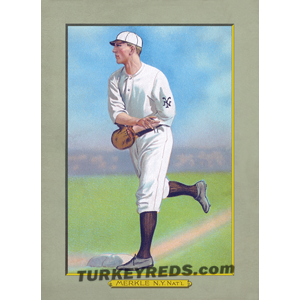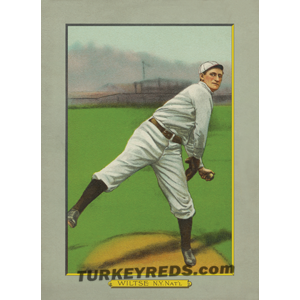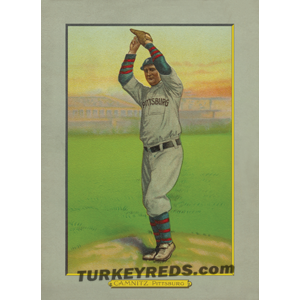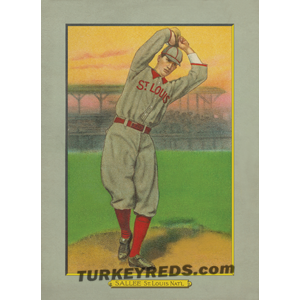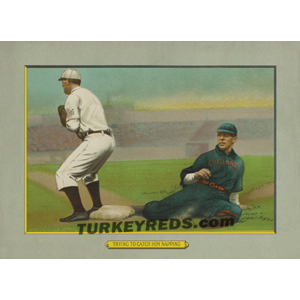Description
Fred Merkle
Born: December 20, 1888 in Watertown, Wisconsin
Died: March 2, 1956 (aged 67)in Daytona Beach, Florida
Bats: Right
Throws: Right
Height: 6’1″
Weight: 190 lbs.
Position: First Baseman
Played For:
New York Giants (1907–1916)
Brooklyn Robins (1916–1917)
Chicago Cubs (1917–1920)
New York Yankees (1925–1926)
Biography:
Born in Watertown, Wisconsin, to Ernst Merkle, a Swiss immigrant, and Amalie Thielmann Merkle, a German American,[3] he was raised in Toledo, Ohio. Merkle played his first Major League game at the age of 18, with the New York Giants in 1907. He was still the youngest player in the National League, and used mostly as a pinch hitter, at the time of his infamous “boner” in 1908. Merkle became the Giants’ regular first baseman by 1910 and contributed in that role to three straight pennant winners from 1911 to 1913. He was traded to the Brooklyn Robins in August 1916 and played in his fourth World Series that year. In April 1917, the Robins sold Merkle to the Chicago Cubs (ironically, the team that had saddled him with infamy back in 1908), with whom he continued as the regular first baseman through 1920. In 1918 with the Cubs, Merkle played in his fifth World Series in eight years, though he never won the championship.
Due to a single base-running blunder on September 23, 1908, Fred Merkle became known by such unflattering epithets as “Bonehead,” “Leather Skull,” and “Ivory Pate.” Those who knew the right-handed cleanup hitter, however, described him as a “gentleman and scholar” and “voracious reader”; in fact, teammate Chief Meyers called him “the smartest man on the club.” Baseball Magazine described the 6’1″, 190 pound Merkle as “a hard hitter who usually delivers in the pinches” and “the most finished fielder in his league,” but what really set him apart from other first basemen was his ability as a base runner. One of the few Deadball Era players who routinely slid head-first, Merkle “was not what one could call a very fast man on a sprint,” wrote John McGraw, “but he was adept at stealing third. He never started unless he had the right lead, and once he started he rarely missed.”
More info:
https://en.wikipedia.org/wiki/Fred_Merkle
http://sabr.org/bioproj/person/372b4391
